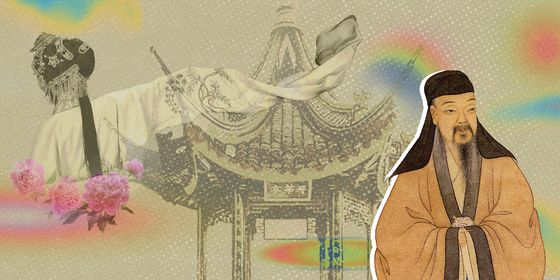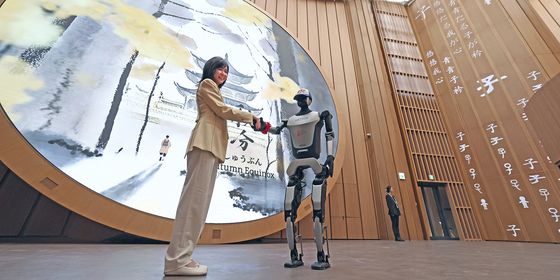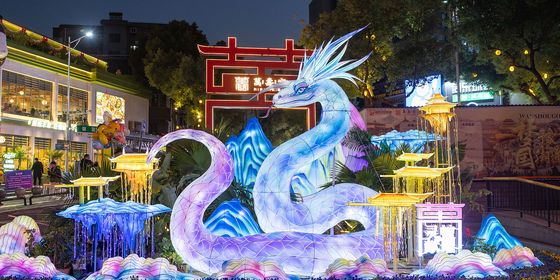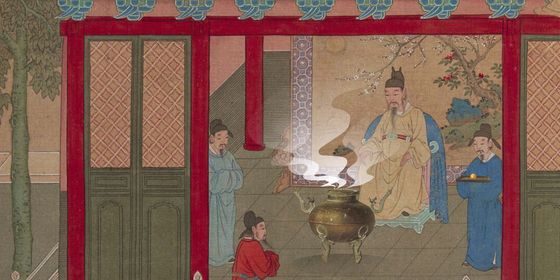Famous and powerful foreigners get their Chinese names a few key ways
Sources in Vancouver recently brought this report to our attention, discussing how in preparation for the BC legislative elections last week, candidates have been showing off their multiculturalism by adopting a Chinese name, giving the nod to a regional minority group of half a million members even if there’s no discernible effect on bringing in votes.
Foreigners adopting or being given Chinese names is not a new phenomenon. In Canada itself, where multiculturalism has been law (and favorite weapon for making fun of Americans’ “melting pot” rhetoric) since 1988, it’s been slowly catching on across the country in the last two decades.
As the report notes, however, it’s not easy to satisfy the demands of a faithful transliteration, awesome meaning, and Chinese naming conventions when transforming a multi-syllabic moniker into just two or three Chinese characters. In China media, several different approaches have been invented to meet these challenges, each with their own advantages and flaws. Let’s have a look:
The Xinhua School
At the very basic level, we have Xinhua’s “Three Principles for Translating Names,” pioneered by the Xinhua News Agency Office of Name Translations. Founded in the 1950s, this office was declared by premier Zhou Enlai as the country’s standard for names translated from foreign languages, including people as well as place names.
Being as Xinhua’s standard is just basic transliteration—that is, approximating the sounds of the foreign name in Chinese characters no matter how long or awkward it sounds—it might be expected that this method is not very popular outside of mainstream media. Even state media compromise by referring to well-known people, such as major celebrities or foreign heads of state, using only their surnames and title even on first mention. Imagine if some of the centimeters-long surnames from the past weekend’s Belt and Road forum guestlist had also included the given names:
(mnw.cn)
However, Xinhua’s “Three Principles” do provide some common-sense guidelines most translators of the other schools also use: “prioritize on the sound,” “follow the name owner’s preferences” (which is the same principle as in AP Style), and “accept the versions that are in common use.” Sometimes the principles are in conflict.
For instance, in 2009, the US Embassy in China issued poster in which they translated then-President Obama’s name as 欧巴马 (Ōubāmǎ) instead of 奥巴马 (Ăobāmǎ) as was standard in Chinese media. However, though 欧巴马 is phonetically closer to “Obama” (first principle) and seemed to be preferred by the US State Department (second principle), Chinese media stuck to using 奥巴马 as that version had already been in circulation for years (third principle).
The “Sinologist” School
This approach to sinicizing names was neither invented nor exclusively patronized by China researchers. However, several of the most well-known examples in China are held by notable sinologists, and almost every sinologist seems to adopt this type of name once they start publishing their works.
Rather than transliterating the original name sound-for-sound in Chinese characters, the “sinologist” approach is to create a separate name that could plausibly belong to a Chinese person, or at least follow basic naming conventions that Chinese people use—namely, a character that could be a surname, followed by one or two characters to represent the given name.
The characters may be chosen based on meaning or sound, and even sound-based choices can vary in how closely they approximate the original, as some name-takers might sacrifice some phonetics for a more impressive meaning or smoother sound.
The grandfathers of this approach can be considered to be Jesuit missionaries Matteo Ricci (利玛窦 Lìmǎdòu) and Johann Adam Schall von Bell (汤若望 Tāngruòwàng), who arrived in the Chinese imperial court in the 16th and 17th centuries respectively. As we can see, while Ricci could follow the “focus on sound” principle and still come up with a plausibly Chinese name, Schall von Bell (沙尔·冯·白尔 in Chinese) was more of a challenge; he instead decided to approximate his second name “Adam” (亚当 Yàdāng) with 汤 and make this his surname, and make Johann (约翰 Yuēhàn) into 若望, which mean “resembling” and “far-seeing.”
In China today, some of the best examples of foreigners who’ve adopted Chinese names in the sinologist approach, defined as those who get admired instead of made fun of on the internet, are historians Jonathan Spence (史景迁 Shǐ Jǐngqīan) and Philip Kuhn (孔飞力 Kǒng Fēilì). The latter captures the sound of Kuhn’s original name and shares a surname with Confucius.
The origin of Spence’s name is disputed, but it seems to pay homage to his profession: 史 literally means “history” (and is similar-sound to Spence), and China’s most admired (景仰) ancient historian had been Sima Qian (迁). Another explanation for Spence’s name is that it’s taken from the names of three characters from the novel The Water Margin.
This is the preferred approach of Canadian politicians as well, but it can be hard to see the connection between the person’s original name and Chinese name. Readers would have to memorize both versions to tell it’s the same person. There’s also an issue demonstrated by Canadian Prime Minister Justin Trudeau: He has given himself the Chinese-sounding name 杜鲁多 (Dùlǔduō), while his father and former prime minister Pierre Trudeau is still referred to as 皮埃尔·特鲁多(Pí’aī’ěr Tèlǔduō) according to Xinhua conventions. Thus, for those who don’t already know, it’s not always apparent that they share the name.
The current Canadian Cabinet also includes Defence Minister Harjit Sajjan (石俊 Shí Jūn) and Minister of Justice Jody Wilson-Raybould (王州迪 Wáng Zhōudí). Due to the second and third Xinhua principles of respecting the name-owner’s preferences and going with names already in common use, Chinese media use the above Chinese names for both ministers as well as the PM, but almost always add their English names in parentheses after for clarity’s sake.
The Cantonese and Taiwan Schools
Like Xinhua, mainstream Cantonese media and media in Taiwan also transliterate names as a rule instead of making up a whole new Chinese name. However, where as Xinhua’s way is to make the transliteration as foreign-looking as possible, both the Cantonese and Taiwan media try to make the transliteration close to a Chinese names and rarely use above three characters.
Former British Prime Minister Margaret Thatcher, for instance, was 撒切尔 (Sāqiè’ěr) on the mainland, 戴卓尔(Dàizhuó’ěr) in Hong Kong, and 柴契尔 (Cháiqiè’ěr) or 佘契尔 (Shéqiè’ěr) in Taiwan. The Hong Kong version reflects Cantonese pronunciation and 戴, 柴, and 佘 are all possible surnames in Chinese. Former US president Dwight Eisenhower was also 艾森豪威尔 (Àisēnháowēi’ěr) on the mainland but simply 艾森豪 in Taiwan.
The Social Media School
TWOC has discussed netizens’ nicknames for foreign celebrities before. The crazier examples tend to be found in the entertainment industry rather than the political sphere, but sometimes, names created by the public cross over to mainstream media under the “accept versions in common use” principle.
Justin Trudeau had been nicknamed as 小杜 (Xiǎ o Dù , “Little Du”) long before he chose 杜 as part of the official translation of his name. However, there are also critics (such as the writer of this popular blog post on Baidu last month) who cautioned against reliance on the “common use” principle in the digital age, as the internet makes it easy for any old name to become popular and displace the official translations.
In a strange reversal, when US president Donald Trump first appeared in Chinese media in his incarnation as a businessman in the 90s, his name was transliterated as 川普 (Chuānpǔ). However, the current official translation is 特朗普 (Tèlǎngpǔ), and to write 川普 is to signal to readers that your text is of the decidedly unofficial variety, probably a WeChat essay.
The Why Bother? School
As the example of the Canadian ministers have shown, since Chinese media often have to rewrite the name in Latin characters after the Chinese for clarity, why not just ditch the Chinese name altogether? This practice is starting to appear in news blogs, entertainment sites, and especially personal communication on social media, especially those targeting young people and urbanites who’ve had enough English and/or pinyin education to sound out a name. Who knows, but perhaps in the realm of foreign names, we might one day see a situation like Vancouver’s campaign signs or Japan’s writing system where a single media report will have a mix of several scripts. Would that be a win for multiculturalism in China?
Cover image from the Weibo of Vancouver mayor Gregor Robertson, also known as 罗品信 (Luó Pǐnxìn)












